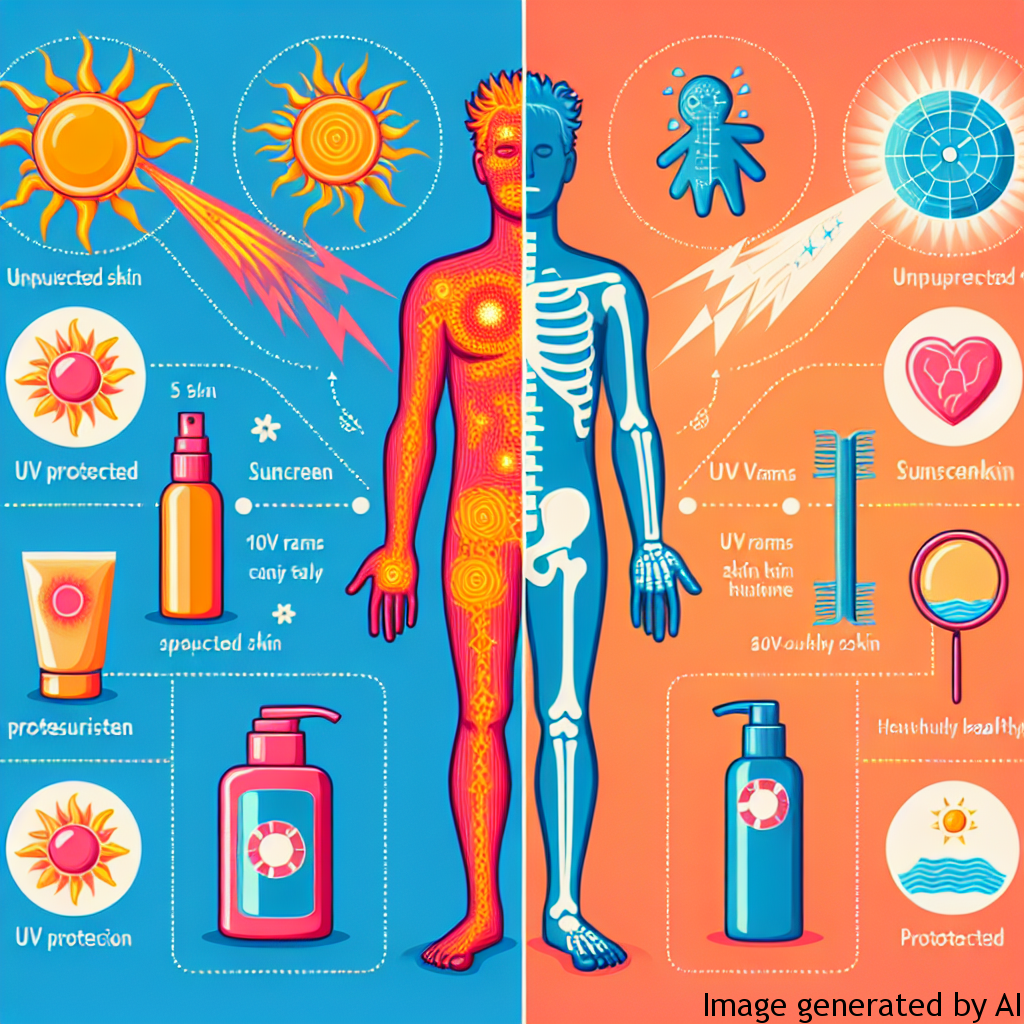Introduction
With rising awareness about skin health, the importance of UV protection cannot be overstressed. The skin, being the largest organ in the body, is constantly exposed to various external factors, including ultraviolet rays from the sun. UV radiation plays a significant role in accelerating skin aging and enhancing skin cancer risk. Protecting the skin against harmful UV rays is then necessary to maintain skin health and prevent skin diseases.
Understanding UV Radiation and Its Effects on Skin
What is UV Radiation?
Ultraviolet (UV) radiation is a type of electromagnetic radiation coming from the sun. This radiation is classified into UV-A, UV-B, and UV-C rays. While the most dangerous, UV-C is absorbed by the Earth’s ozone layer. However, both UV-A and UV-B penetrate the atmosphere and have damaging effects on skin health.
Effects of UV Radiation on Skin
Unprotected exposure to UV radiation damages the skin on a cellular level, leading to photoaging, immune suppression, and skin cancer. Photoaging is characterized by premature skin aging signs like wrinkles, spots, and a leathery look. Moreover, UV radiation can suppress the immune system, lowering the skin’s ability to fight off infections and diseases. Most importantly, prolonged UV exposure can lead to melanoma and non-melanoma types of skin cancer.
Examples of How UV Radiation Affects Skin Health
Extended exposure to UV rays has several immediate and long-term impacts on skin health. Sunburns are immediate effects, with the skin displaying redness, swelling, and pain. In the long run, excessive UV exposure without protection can lead to significant skin damage, such as premature skin aging, characterized by age spots, wrinkles, fine lines, and sagging skin. Prolonged UV radiation exposure also increases the risk of various types of skin cancer, including potentially deadly melanoma.
Tips to Improve Skin Health Considering UV Protection
Incorporating UV protection into the daily routine is key to maintaining skin health. Here are a few helpful tips:
- Apply a broad-spectrum sunscreen with an SPF of at least 30 every day, even on cloudy days. Reapply every two hours when outdoors.
- Wear protective clothing, hats, and sunglasses to protect your skin and eyes from UV radiation.
- Avoid sun exposure during peak UV radiation hours, usually between 10 a.m. and 4 p.m.
- Regularly examine your skin for any strange changes and consult a dermatologist if you notice anything unusual.
Conclusion
UV protection is a vital component of maintaining skin health and preventing skin diseases, especially skin cancer. Understanding the dangers posed by UV radiation and the steps needed to protect the skin can help individuals take better care of their skin and promote their overall health. Remember, proper skin care is not just about looking good but also about staying healthy.

